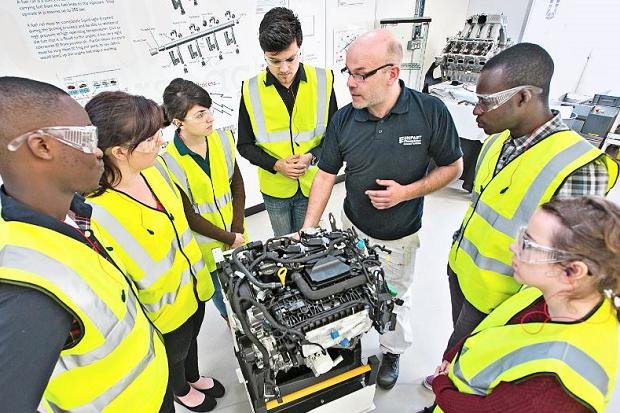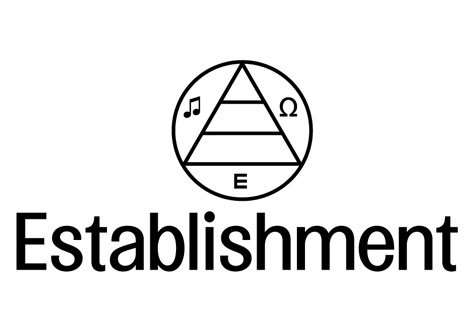Experts for everything
The title is sadly not taken out of some sort of comic book, but it is rather mundane. Today's universities are rapidly changing themselves into profit making machines that produce x amount of workers, highly qualified experts. We already have available a lot of different experts who can produce rocket engines, nuclear shells, biological weapons, we even have experts for the soul such as any religion, then we have experts for personal growth, changing characters, dating gurus and so on and on.
Soon we will have experts on every single corner of our everyday life. For every single problem we will be able to call an expert on a dime, he will come to our house, solve the problem and of course charge us a hefty amount of money.
The logic of the capital is remarkably simple: if there is a practical problem, there can exist an expert to solve it. And if there is no expert yet, we hastily make it, sorry i mean to say train. Practical problems are very common and many, thus the people who can solve them also have to be many.

Neoliberalism is capable of making every single practical service that we can think of, calculate, and of course make an expert for it. But almost everything that the representatives of neoliberalism declare is a practical, even if it is absurd. For them even if something is not practical, they simply won't accept it as a real problem then. Either it is practical or it does not exist. The world is thus one giant service play yard for every expert on every practical problem that develop independently. But we can also think it in another way. For people to be bussy, we can simply make problems so the experts will have jobs even in the future.
In such a world we will of course not find an expert who would ask himself: "what is the point of such people?" Now i ask myself: why is there no expert who would ask such a question? I think there is no such expert because asking that question is not practical, and would be considered hateful and dangerous to those who still have jobs and depend from it. One more reason comes to mind, experts do not think, better said - philosophise, for they solve actual and practical problems, and if they do think, their thinking is merely focued on the problem they have to fix in a way that someone else thought them.

The world of tomorrow is probably like that because the universities will not reform from making vast amounts of profit - who would, would it even be right to do so? The people will not think because they will have all the experts possible available on a press of a button, in the meantime the experts will call other experts to solve another problem. An endless loop.
Even today is not much different.
Example
The religion is the so called place to gain moral high ground and grow. For instance catholic priests always talk about difficult things like spirituality, family, raising children, values and such things. While they themselves have no family, no children to raise for themselves, often hearing on the news that this or that priest was found to molest and abuse him/her and more often children. Yet they still talk about values and how to raise other peoples children.
I ask myself how is this possible, from where did all this insanity come from, the idea that this or that idea of professional expertise is reserved just for some people? On what ground are people taking advices from priests even if they know that they do not know anything about these things. Sadly we can say that this is still a reflex from the middle age. In the year of 2016. Just to be fair, islam is hardly any different.

Instead of listening to priests we should listen to the people of now, who are not burdened by even one thread of past and their ideological assumptions. Why is no one listening to the people of the now? I ask myself and find not answer.
But i do know why should we listen to the people of the now. Because life is full of everyday small features and gestures which pop out of the ordinary who are not caught in jargon or "beating around the bush". When we talk about a subject, we don't usually talk about politics or owners of capital, accurately said: we don't talk about them at all.
We talk about the man on the street, a normal human in a privileged position that can do something remarkable, for he is not burdened neither by the capital or jargon.
In this is also our hope, from politicians and representatives of lordship we cannot exactly expect to relinquish anything and set themselves free. Humans can only free themselves if they do not have any fixed planes for the future to which they must rush, thinking that such is the way of life and that time flows way too fast. Politicians, managers and others who hold power have such fixed planes, therefore they can literally not say anything which would cause them to stop and relinquish their own planes. They offer people this jargon knowingly that they know it will not harm them or their planes in any considerable way.
Such people thus cannot talk any other way for they are forced to talk the same things over and over again, preserving these structures alive for which they are in positions as they are. They only talk differently only when they have an unknown feeling - as Kant would have it right when he said that it is ethically to talk publicly on any subject that the reason permits us and not any lordship which is constantly afraid of losing his "status" - position.

As a being of thought the owners of capital and their jargon do not interest me in the slightest, what i am interested is what my reason is permitting me. Because i am not burdened by the approval of owners i am unburdened with structural expectations who push on the owners to keep their facade of their established social discourses.
The difference is obvious even on the level or individuals. If you are a careful observant, you quickly find those who are unburdened when he/she talks, those who "should" use the jargon and whom to present it to, and those who do not even care about it. Today it seems that most of the "modern" human race is depended on ideological speeches.

But soon the time will come when people who are affraid today to speak out, will stop pretending that they don't know what is happening in reallity and it will mean that they will take the power into their own hands. Today it is still possible to pretend that the wolrd is fine or what ever, but that does not mean that tomorow it will still be the same. There still many who believe economists, that they know how the capitalism is working and that they will keep it in good shape in their name.
In truth they have yet to find the slightest idea of how it works, they simply abuse the poples fear and assumptions. The power of the mind is namely that it does not allow any sort of return into the normal state of capitalism in which it will allow further exploting of workers, manipulating with consummers, alienation of human power to not be used against those who are in comand.
Sources of images:
Source 1
Source 2
Source 3
Source 4
Source 5
All photos are Public Domain, i do not have or hold any author rights of them.
I don't agree with everything that is in this post.
First:
That probably only applies to a very small number of universities (in the US?). Many of them are actually dying because of large debts so that they can hardly sustain themselves.
Secondly, in the case where one would be an expert in a field, this means that one has acquired some knowledge about this field and that people can ask questions and one is able to provide answers or comments. It does not mean one will dictate the way of thinking of all the people in this field. This at least applies for experts in scientific domains (which does not contain dating experts :p ). Maybe a distinction is in order.
I agree.
The first:
It applies to most universities. I ask myself this: why are universities even in debt? If a university is good, why should it not get any support from the government? Even the idea that one has to pay for someone to learn is kind of misplaced. If one has interest in some domain it should be for free, knowledge is for all to use, not just for the selected few. Everyone deserves great education.
I have seen that some universities shorten the program just in order to save a few $. Not just in the U.S. I find that very concerning.
The second:
We do see that everything needs to become a scientific domain in order to get any recognition in the world. Knowledge can become acquired by simply saying you got it from this or that university. People do not ask the university what guarantees their own knowledge, usually they make a research on the topic, select a few other professions that have connections with it and teach it to students. Then they call the students of these collaborated domains, experts.
Thank you for the great comment.
I will talk about what I know. In France (where I live and work), the universities must manage themselves alone. Some are good and some are not. Some are also specialized in fields attracting external investors. Some are not. All of this together makes that most universities are not that rich, and I cannot imagine they look for profit. All the money my university is trying to get through donations is reinvested in better infrastructure, new libraries, student places, supporting fields of research not popular enough to get external fundings, etc. It is hard to me to conceive that a university is only aiming to make profit for profit. Do you have example?
For the second item, the point is that not everything is science (and should be science). But the terminology 'expert' is then maybe not appropriate. One may distinguish a scientific expert who is really a world-wide recognized expert of his/her field, and the other. Like a dating guru (I like this example). My students are not experts. I hope they will become at some point, but this takes more than attending a few lectures....
Awesome post thanks
Post for brain food. Thank you.